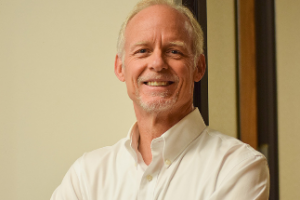Cardinal Bishop Raymond Burke, a prominent Church prelate and Canon lawyer, issued a statement on April 7, 2021 explaining that politicians who publicly support abortion and other intrinsic evils contrary to Church teaching should not receive Holy Communion. He based this, in part, on the fact that those politicians may be automatically excommunicated.
Cardinal Burke does not mention Joe Biden or Nancy Pelosi by name but the implication is clear since they are among the most pro-abortion leaders in our nation’s history. The Cardinal cites canon 1364 of the Code of Canon Law, which imposes an automatic excommunication on the following persons:
1. Apostates… including those who publicly and obstinately violate the moral law, effectively abandoning the faith by their obstinate refusal, in practice, to live in accord with fundamental truths of faith and morals.
2. Heretics, including those who obstinately deny or doubt the truth about the intrinsic evil of abortion as believed by divine and Catholic faith.
Another code provision that may apply is canon 1398 which imposes an automatic excommunication upon any person who procures a completed abortion. While Cardinal Burke does not specifically address canon 1398, it could apply to government officials who actively promote laws and/or make executive orders encouraging women to obtain abortions and compelling taxpayers to pay for those abortions.
No matter how much a politician insists that he or she is a devout Catholic, the morality of abortion is simply not open to debate under Catholic teaching. Saint John Paul II emphasized the Church’s constant teaching on abortion, binding upon all Catholics, in his Encyclical Letter Evangelium Vitae, declaring: “Therefore, by the authority which Christ conferred upon Peter and his successors, in communion with the bishops… I declare that direct abortion, that is, abortion willed as an end or as a means, always constitutes a grave moral disorder, since it is the deliberate killing of an innocent human being.”
Excommunication is generally seen as a kind of medicinal penalty meant to awaken a person’s conscience to repentance (canon 1312 and 1331). It also seeks to minimize scandal by letting the Catholic community know that certain egregious conduct is inconsistent with the faith and a threat to our souls.
Excommunication severs a person from communion with the Church. Excommunicated Catholics are forbidden to receive the sacraments, including the Eucharist, and they are barred from taking an active part in Catholic liturgy until the excommunication is removed by absolution. They are still Catholics per se, but are separated from the Church.
Automatic excommunication does not involve the kind of formal canonical process and official Church decree we normally think of when we hear about a person being excommunicated, but it is still an excommunication. Some of the more well known formal excommunications in history include Fidel Castro, Henry VIII and Martin Luther. Automatic excommunication, by contrast, happens without the formal process, usually without any public fanfare, when a person commits one of the acts specifically punished by automatic excommunication under Canon Law.
Under Church law, automatic excommunication is not conditioned upon any express declaration by the person’s bishop, although Cardinal Burke notes that the person’s bishop “must verify the conditions for the declaration of the penalty of excommunication, which has been automatically incurred.” This is referring to a formal declaration by a bishop who has verified that the person’s conduct meets the requirements for automatic excommunication, but the formal declaration is not a pre-condition for the excommunication itself.
Excommunication, whether by specific decree or automatic, removes a person from good standing in the Church until he or she confesses the sin and the excommunication is lifted. In the meantime, we can never know for sure whether any person is in a state of grace or not but we believe as Catholics that we need sanctifying grace to be saved and we must be free from mortal sin when we die in order to get to Heaven.
The Church also teaches that it is a sacrilege for an excommunicated person to receive the Eucharist.
Priests who knowingly give communion to an excommunicated person may be cooperating in the sacrilege and causing further scandal. Cardinal Burke says “It is the duty of priests and Bishops to instruct and admonish the faithful who are in the condition described by canon 915, lest they approach to receive Holy Communion and thus commit a most grave sacrilege, redounding to their own eternal harm and, likewise, leading others into error and even sin in such a serious matter.” Cardinal Burke sums up by saying that “neither may the minister of Holy Communion give him or her the Sacrament.”
So-called “Catholic” politicians who obstinately promote abortion are, quite simply, not Catholic. They have rejected the Church’s clear moral teaching and are cultivating a sham association with the Catholic Church for political expediency. The American bishops as shepherds of the Church should publicly and unequivocally address this for the sake of the Church, our country and their pastoral care for souls.



You must be logged in to post a comment.